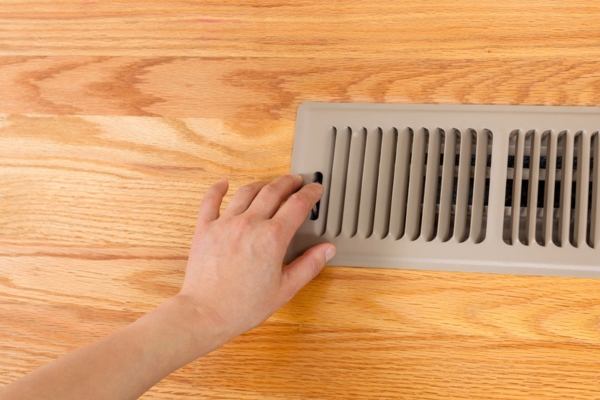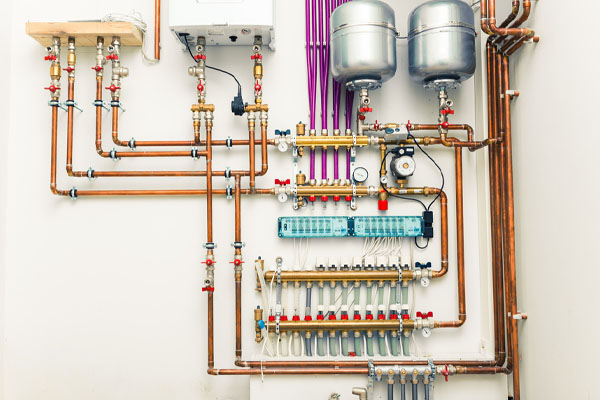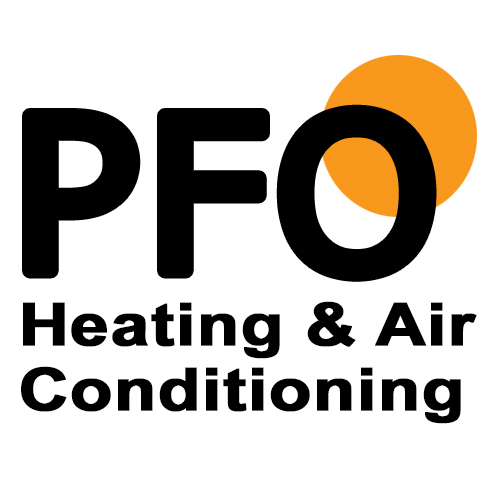
Heating systems are critical components for maintaining a comfortable indoor environment, especially during colder months. Two of the most popular heating options are forced air and hydronic heating systems. Each system offers a unique operating method and advantages. Selecting the right heating system between forced air vs hydronic heating systems is crucial for optimizing energy efficiency, comfort, and long-term costs.
PFO Heating & Air Conditioning, a trusted HVAC provider, offers expert guidance and professional installation services to help homeowners choose and maintain the ideal heating solution for their specific needs. This article discusses the differences and similarities between forced air and hydronic heating systems.
Forced Air Vs Hydronic Heating Systems: A Comprehensive Comparison For Your Home Heating Needs
Contents
- 1 Forced Air Vs Hydronic Heating Systems: A Comprehensive Comparison For Your Home Heating Needs
- 2 Overview of Forced Air Heating Systems
- 3 Overview of Hydronic Heating Systems
- 4 Key Factors to Consider When Choosing Between Forced Air and Hydronic Heating
- 5 Forced Air Vs. Hydronic Home Heating Systems FAQs
- 5.1 What Are The Annual Maintenance Requirements For Forced Air And Hydronic Systems?
- 5.2 Can A Forced Air System Be Converted To Hydronic Heating?
- 5.3 How Do Forced Air And Hydronic Systems Impact Humidity Levels In A Home?
- 5.4 Are There Zoning Options Available For Forced Air And Hydronic Heating?
- 5.5 Which Heating System Is More Durable In Cold Climates?
- 6 Conclusion: Which Heating System Is Right for You?
- 7 Call PFO Heating & Air Conditioning For All Of Your HVAC Requirements

Understanding the differences between forced air vs hydronic heating systems is essential for making a well-informed decision about your home’s heating. Each system has distinct features that impact comfort, efficiency, and cost. By exploring their characteristics, benefits, and limitations, you can choose the heating system that best meets your home’s specific needs and preferences.
Trust PFO Heating & Air Conditioning for All Your Heating Needs: Keep your home comfortable and efficient with PFO Heating & Air Conditioning’s top-tier heating services. Call today!
Overview of Forced Air Heating Systems
Forced air heating operates by using a furnace to heat air, which is then distributed throughout the home via ductwork and vents. Common types of forced air systems include gas, electric, and oil furnaces, each offering varying levels of efficiency and fuel options. This system works by drawing in cold air, heating it in the furnace, and then using a blower to push the warm air through the ducts to different rooms.
Advantages of Forced Air Heating

- Quick Heating: Forced air systems rapidly heat homes by quickly warming air in the furnace and distributing it through ductwork, providing near-instant comfort.
- Ductwork for Central Air: The same ducts used for heating can serve central air conditioning, offering a cost-effective solution for year-round climate control and simplifying HVAC setup.
- Air Filtration: Air passes through filters that capture dust, pollen, and allergens, improving indoor air quality and contributing to a healthier home.
- Affordable Installation: Lower installation costs, especially in homes with existing ducts, make forced air systems a more economical choice than options requiring extensive new infrastructure.
Select PFO Heating & Air Conditioning for Trusted Heating Services: Guarantee your home’s comfort and efficiency with the expertise of PFO Heating & Air Conditioning. Contact us now!
Disadvantages of Forced Air Heating
- Noise: Forced air systems can produce noise from the blower and air moving through ducts, which may disrupt quieter areas of the home.
- Inconsistent Heating: Airflow issues can lead to hot and cold spots, with uneven temperatures caused by leaks or duct blockages.
- Maintenance Needs: Regular maintenance, including filter changes and duct sealing, is needed to maintain efficiency and consistent comfort; neglect can lead to performance issues.
Overview of Hydronic Heating Systems

Hydronic heating systems utilize water or steam to transfer heat throughout the home. They deliver warmth via radiators, baseboard heaters, or underfloor pipes. Types of hydronic systems include radiant floor heating, which delivers warmth from the ground up, and baseboard heating, which distributes heat through wall-mounted units.
Count on PFO Heating & Air Conditioning for All Your Heating Requirements: Enjoy a cozy, energy-efficient home with PFO Heating & Air Conditioning’s professional solutions. Call today!
Advantages of Hydronic Heating
- Even Heat Distribution: Hydronic systems deliver consistent, even heating throughout the home, minimizing temperature variations and eliminating cold spots.
- Quiet Operation: Hydronic heating operates silently with no air forced through ducts, providing a noise-free heating solution.
- Energy Efficiency: Hydronic systems, especially radiant floor heating, are highly energy-efficient, often using less energy to maintain comfortable temperatures.
- Allergy-Friendly: Hydronic systems do not circulate air, reducing the spread of dust and allergens. This makes them ideal for people with allergies or respiratory issues.
Disadvantages of Hydronic Heating

- Slower Heating: These systems take longer to heat a space compared to forced air, as they rely on gradual heat transfer through water or steam.
- No Cooling Option: Hydronic systems cannot provide air conditioning without ductwork, requiring a separate cooling system.
- Higher Installation Costs: Installing hydronic systems, particularly radiant floor heating, can be expensive and may require extensive retrofitting in existing homes.
Turn to PFO Heating & Air Conditioning for Superior Heating Expertise: Achieve optimal comfort and savings with PFO Heating & Air Conditioning’s reliable services. Reach out today!
Key Factors to Consider When Choosing Between Forced Air and Hydronic Heating

When selecting between forced air and hydronic heating systems, several key factors should guide your decision to ensure you enjoy maximum efficiency and comfort in your home.
- Energy Efficiency: Forced air systems may consume more energy. This is due to potential air leakage in the ductwork. While hydronic systems generally offer greater energy efficiency, particularly in applications like radiant heating that require less energy to maintain consistent temperatures.
- Home Design and Retrofit Needs: Hydronic heating is often more suitable for new constructions or major remodels. This is due to the extensive installation requirements. While forced air systems can be easier and more cost-effective to retrofit in existing homes with ductwork.
- Indoor Air Quality Considerations: Forced air systems can circulate allergens and dust particles unless regularly maintained. Hydronic systems, on the other hand, do not blow air throughout the home. This makes them a better choice for people with allergies or respiratory issues.
- Heating System Cost: While the initial installation cost of forced air systems tends to be lower, especially in homes with existing ducts, hydronic systems can offer long-term savings through lower energy consumption and reduced maintenance needs.
- Comfort Preferences: Homeowners’ preferences for quieter operation, consistent temperatures, and the presence or absence of moving air can significantly influence the choice between these two heating systems.
Depend on PFO Heating & Air Conditioning for Unmatched Heating Solutions: Experience consistent warmth and efficiency with PFO Heating & Air Conditioning’s tailored services. Call now!
Forced Air Vs. Hydronic Home Heating Systems FAQs

What Are The Annual Maintenance Requirements For Forced Air And Hydronic Systems?
Forced air systems require regular filter changes (every 1-3 months), duct cleaning, and an annual furnace check. Hydronic systems need less frequent upkeep, with yearly boiler, valve, and pump inspections and occasional checks for leaks or pressure issues.
Can A Forced Air System Be Converted To Hydronic Heating?
Yes, but converting a forced air system to hydronic heating can be complex and costly. It involves removing ductwork, installing pipes, and adding radiators or radiant floor heating. This is often best done during renovations or new construction.
How Do Forced Air And Hydronic Systems Impact Humidity Levels In A Home?
Forced air systems tend to dry out indoor air, especially in winter, sometimes requiring the addition of a humidifier. Hydronic systems, however, do not affect humidity levels, making them a better choice for maintaining consistent moisture in the air.
Choose PFO Heating & Air Conditioning for Top-Tier Heating Services: Ensure your home stays comfortable and efficient year-round with PFO Heating & Air Conditioning’s dedicated solutions. Contact us today!
Are There Zoning Options Available For Forced Air And Hydronic Heating?
Yes, both systems can have zoning options, but they differ in execution. Forced air zoning utilizes dampers in the ductwork to control airflow to different areas. Hydronic zoning is easier to implement by installing separate circuits for different rooms or zones, allowing precise control of temperature.
Which Heating System Is More Durable In Cold Climates?
Hydronic systems tend to be more durable and efficient in extremely cold climates, providing consistent heat. Forced air systems can struggle with heat loss through ducts in colder regions, requiring more energy to maintain comfortable temperatures.
Conclusion: Which Heating System Is Right for You?
Choosing between forced air vs hydronic heating systems depends on your home’s needs and preferences. Forced air offers quick heating, lower installation costs, and year-round use with air conditioning, but it can lead to noise and inconsistent temperatures. Hydronic systems provide quiet, even heating with higher energy efficiency but involve higher installation costs and slower heat delivery.
Consulting with a professional HVAC company like PFO Heating & Air Conditioning ensures you get expert advice suitable to your home’s specific requirements helping you select the best system for optimal comfort and efficiency.
Call PFO Heating & Air Conditioning For All Of Your HVAC Requirements
PFO Heating & Air Conditioning offers superior heating and cooling services in Greater Princeton, NJ. We hire the best certified technicians who can provide you with excellent HVAC tune-ups, repairs, installations, replacements, and much more! Each of our techs has the knowledge and experience to service your HVAC system correctly.
PFO Heating & Air Conditioning guarantees the most competitive heating and cooling service costs in the area. Our maintenance services can improve your comfort, and increase your energy efficiency while reducing your home heating and cooling costs. If you need an HVAC repair or replacement system, we recommend the best solution for your home while staying within your budget.
We back all of our work with a guarantee to ensure your satisfaction. To schedule a service appointment, give PFO Heating & Air Conditioning a call today. We offer free, in-home consultations. Call now!
Click here to contact us now or call us at (800) 253-9001 to find out more! Click the link to view our service area.

Related Articles:



